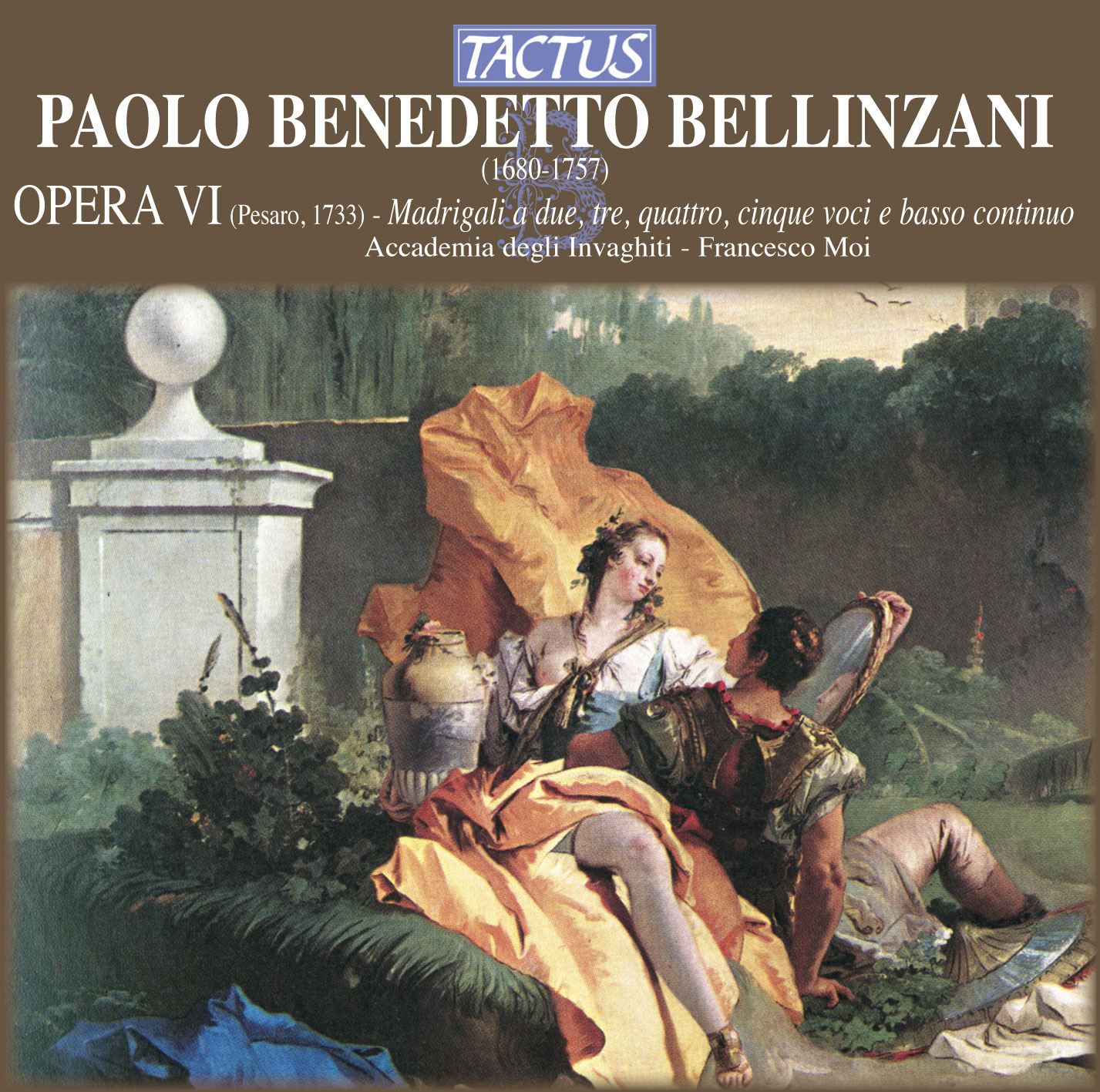BELLINZANI PAOLO BENEDETTO
The importance of Bellinzani’s works in the musical world of the eighteenth century has been re-examined by the musicologist Adriano Cavicchi, who does not hesitate to claim that “between 1720 and 1760, this excellent musician had an influence on his contemporaries in the field of vocal music which was almost comparable to that which Corelli had in instrumental music.” Indeed, Bellinzani’s vocal music enjoyed a widespread and well-earned notoriety for polyphonic excellence, wealth of expressive means and stylistic elegance.
His madrigali op. VI (1733) represent a turning point in the history of music in that they are the last example of a genre which was extremely popular in the 16th and 17th centuries.
The long and illustrious history of the Italian madrigal, in fact, does not end with Monteverdi’s 8th Book: madrigals were composed, performed and published until the early 1700s.
Examples of “late” madrigals include those by Alessandro Scarlatti (1695), Antonio Lotti (1707) Benedetto Marcello (1721), Antonio Caldara (1731) and – as we have already said – Bellinzani.
Tracklist
Bellinzani, Paolo Benedetto
Madrigali, Op. 6
1 - Preludio (2:20)
2 - Effetti amorosi: Se il tuo bel labbro io miro (7:23)
3 - Scuola d'a more: Ama la donna il forte il ricco il bello (7:06)
4 - Preludio (1:01)
5 - Amor disingannato: Clori in eta d'aprile (5:59)
6 - Origine d'amore: Amor nascesti in cristallino fonte (6:23)
7 - Supplica amorosa: A tuoi sospiri o Bella (6:45)
8 - Bellezza caduca: Guarda o Clori la rosa (6:10)
9 - Preludio (1:57)
10 - Proprieta' d'amore: Arciero ignudo e cieco (5:40)
11 - Musica d'amore: Bel concerto che fan in dolce canto (7:46)
12 - Preludio (1:21)
13 - Brevita' della vita: Quando che negli albori (7:06)
- Compositore: BELLINZANI PAOLO BENEDETTO
- Esecutori: Accademia degli Invaghiti su strumenti d’epoca – direttore: Francesco Moi – Soprani: Anna Simboli e Monica Piccinini; Alto: Ernesta Scabini; Tenore: Luigi Pagliarini; Basso: Sergio Foresti; Violoncello: Rebeca Ferri; Violone: Maurizio Less; Tiorba: Maurizio Piantelli; Tiorba, chitarra barocca: Ugo Nastrucci; Clavicembalo e concertazione: Francesco Moi
- Periodo storico: Secondo barocco
- Codice: TC 682701
- Edizione: 1999
- Barcode: 8007194101324
- Set: 1
- Numero tracce: 13
- Durata totale: 01:08:21







